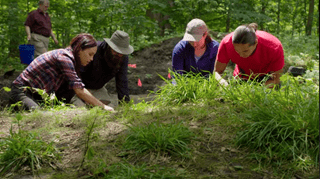
Sheridan Business students seeing value in remote learning
 by Jon Kuiperij – Aug 20, 2020
by Jon Kuiperij – Aug 20, 2020 Sheridan’s business programs are known for providing collaborative and supportive learning environments. So when the COVID-19 pandemic forced the closure of post-secondary campuses across the continent in March, many Pilon School of Business (PSB) students feared that nurturing atmosphere might disappear as well.
“I was very worried about how we were going to get through the rest of the year,” recalls Aseel Shammas, a fourth-year student in Sheridan’s Bachelor of Business Administration (BBA) Human Resources degree. Adds BBA Marketing student Kaweesha Gamaralal: “We do a lot of group work, and when we had to switch to learning from home, I was nervous that the group work might not continue.”

Fortunately, it didn’t take long for those fears to be alleviated. Within a couple of weeks, BBA programming — along with nearly 3,000 other courses across the college — had been retooled, rethought and reorganized by Sheridan faculty for remote delivery. “I looked at what I did in a regular classroom environment, and searched for technology that would help replicate it online,” says PSB Professor Wayland Chau. “For example, I assign a lot of case problem work that gets students working in groups of three or four and discussing with each other. We’ve been able to continue that by using WebEx’s breakout groups functionality.”
Maintaining approachability and accessibility has been a focus for fellow PSB Professor Dr. Patrick Francis. “I demonstrate to students that I’m invested in their success by taking time out before every lecture to find out areas of concerns and challenges that I may be able to clarify with them,” Dr. Francis says. “Since we’ve switched to remote learning, I’ve been setting up one-on-one virtual appointments, which continues to build that rapport.”
Although the students have missed the in-person interaction with their professors and peers, they’ve realized remote learning has its benefits as well. Shammas has been able to continue her studies after moving to the United States to be with her husband. “I have access to all of the same tools and resources as I did on campus,” says Shammas, who is taking six courses remotely this summer. “And it’s really helped to have my family around me. I’m in a different country, but it feels like I’m at school in Canada. I’ve been able to experience the best of both worlds.”
Shammas has also noticed increased engagement from students who didn’t seem as comfortable expressing themselves in the physical classroom. Gamaralal agrees. “I’ve begun to speak up a bit more in the online class sessions. There’s been a definite increase in participation from most students.”
Chau has seen that too, particularly when it comes to interaction between students who might not have otherwise worked together on assignments. “In the regular classroom, students tend to sit with their friends and only work with them,” he notes. “Breakout groups are actually easier to set up randomly, and I’ve heard anecdotally that the students have enjoyed meeting new people.” The creation of online discussion boards has also been a source of added engagement. “Students deeply appreciate this,” Dr. Francis says. “It allows them to voice their opinions and/or respond to the thoughts of their peers, in addition to gaining further insights into the subject matter.”
“I’ve begun to speak up a bit more in the online class sessions. There’s been a definite increase in participation from most students.” - Aseel Shammas
Amanda Oreskovic, currently in her final year of the BBA Human Resources degree, has found convenience in how live-streamed lectures are also being recorded. “We’re able to go back and listen to them again if we don’t understand something,” she says. “I haven’t used that as an excuse to not pay attention in class, but it’s definitely a nice security blanket to have.”

Amanda Oreskovic, a Sheridan Human Resources Management student in the Pilon School of Business.
The remote learning environment may also be giving the students a preview of how the work world will operate post-COVID. Many workplace experts anticipate employers will continue shifting towards more remote hours for employees, citing the productivity most workers have maintained while working from home during the pandemic.
“It’s been great learning to use platforms that companies have become more reliant on, and I’ve become more familiar with the different ways to collaborate in a virtual setting,” says Oreskovic, who also completed her internship remotely this summer by participating in Sheridan’s Virtual Internship Program. Shammas adds, “I feel like I’m now even more prepared to get a job, and if it’s working remotely, even better. I can be anywhere in the world, perform my work and then enjoy the rest of the day to myself.”
Learn about Sheridan's five business degrees.
Pictured at top of page: Students in a Human Resources Management Class at Sheridan before the pandemic.
Written by: Jon Kuiperij, Marketing Content/Copy Writer at Sheridan.
Media Contact
Meagan Kashty
Manager, Communications and Public Relations






